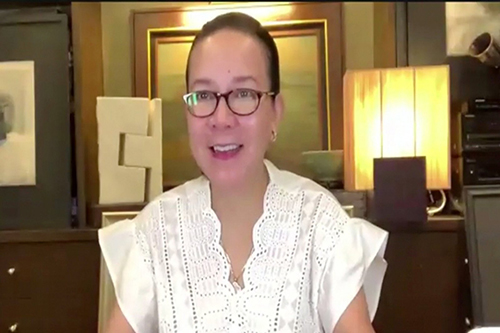During the Senate deliberation for the 2021 budget of the Department of Information Communications Technology (DICT), Sen. Grace Poe made a strong push to approve the agency’s proposed P18-billion budget for the National Broadband Program (NBP) in 2021.

At the same time, Poe called for the re-evaluation of the National Telecommunications Commission (NTC)’s performance in ensuring the monitoring of Internet speed in the country.
“NTC is slow to act on complaints. It doesn’t have data and if you give them more authority, I don’t know if they will use it to the advantage of the people they’re supposed to serve,” Poe said during the budget deliberation on Friday, November 20.
Poe said she filed a measure, Senate Bill No. 1831 or the Better Internet Act, which aims to provide reliable, secure and affordable Internet by mandating the increase in service coverage and setting the threshold speed of other service standards.
Under the bill, Poe explained Internet providers that fail to comply with the 80/80 requirement– that is 80 percent of their advertised speed at 80 percent of their time — would face penalties from P200,000 per day to P2 million per day.
As for the P18-billion proposed budget for its NBP, Poe said increasing the funding for the state-owned broadband network would improve the Internet quality in the country and expand its coverage to benefit the citizenry.
Under the 2021 General Appropriations Bill, the DICT was allocated only P902 million for the broadband project. The House of Representatives’ version of the budget augmented it by P2 billion, while the Senate finance committee, in its report being discussed in plenary, added P3 billion more.
Poe said the amount still falls short of the P18 billion requirement for the full implementation of the project, emphasizing that the original allocation of less than P1 billion “almost did not recognize its significance.”
On her questioning, it was explained in plenary that the broadband project will be able to cover the connectivity needs of the entire bureaucracy, including local government units (LGUs).
Communications among government offices using Web-based applications could be done with ease and more efficiently and thus, would boost delivery of public service.
Government would save up to P34 billion in Internet expenses by 2025 if Congress augments the budget for the broadband project, DICT earlier said.
“P34 billion ang matitipid natin, ang hinihingi lang nila (DICT) ay P18 billion, bawing-bawi na kaagad ‘yung hinihingi nilang funding kaya ibigay na natin,” Poe said.
The senator said having an efficient infrastructure for connectivity could mean additional revenues for the government.
“We cannot rely on telcos alone. If we can actually get the telcos to use state infrastructure, that would mean extra income for the government,” Poe added.
Poe backed the request of the agency to give it the full P18 billion it needs for the completion and rollout of the NBP, which would fill in a critical need in the face of increasing dependence on connectivity and Internet service due to the pandemic.
“Sa panahon ngayon talagang isa sa pinaka-importante ay ang Internet natin kasi marami sa mga kababayan natin ay nagtatrabaho sa bahay. Marami ring estudyante kung hindi lahat, nasa bahay din nag-aaral,” the chairperson of the committee on public services said in her interpellation.
“Sana mas mabilis, sana mas mura at sana lahat meron. Sana all,” Poe added.
The senator said laying down crucial infrastructure for connectivity should not suffer budget cutbacks given its immense benefits to the people.
“Making Internet readily accessible and affordable to all Filipinos means wider opening for information, service and opportunity that the Internet holds,” Poe said.
Poe said having a reliable Internet connection will also allow the full implementation of Republic Act 10929 that laid down a Free Public Internet Access Program.
The law establishes free Internet access in public places, a measure touted by government as a boost to productivity, competitiveness and connectivity.
The law covers public places such as government offices, state universities and colleges, hospitals and health centers, parks and plazas, libraries, airports and seaports, transport terminals, among others.




